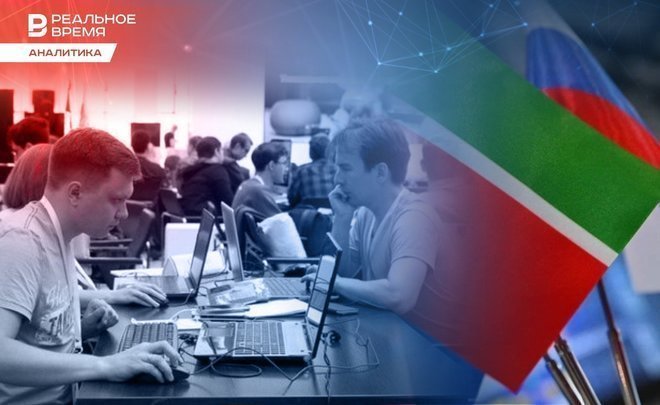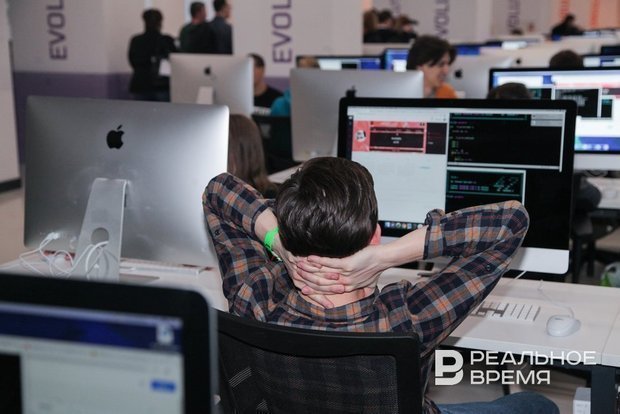SAP says goodbye to Russia. How Tatarstan replacing foreign corporate IT systems

In September, the German supplier of industrial software SAP notified partners and customers about the termination of support for its solutions in Russia. This did not become overwhelming news for Russian enterprises. In 2022, every second company was left without technical support due to the withdrawal of foreign IT companies from the country and was forced to embark on a thorny path of import substitution. The oil and gas, chemical industry and banks turned out to be the most dependent on foreign software. How the import substitution process is progressing in 2023 and to what extent companies are ready to switch to domestic software today — in the review of the analytical service of Realnoe Vremya.
The main challenge in terms of import substitution of foreign technologies today is the lack of application software for specialised enterprises. It is impossible to find a replacement for existing imported solutions right away, the press service of the Ministry of Digital Development of Tatarstan commented. Therefore, the state offers various measures to support and stimulate the development of domestic solutions and the transition to Russian software. The Ministry of Digital Development of Russia maintains a register of ready-made solutions, it is possible to choose solutions in the register of domestic software.
Other challenges — Russian solutions are often more expensive than Western ones, not all have the usual functionality and convenience. However, the situation is gradually improving with an increase in the level of maturity of Russian products, the ministry noted.

Each of the large enterprises of Tatarstan — KAMAZ, Nizhnekamskneftekhim, Kazanorgsintez, Tatneft — has its own teams or subsidiaries with SAP expertise today. “There are a lot of Tatarstan companies providing survey services, selection of solutions and introducing domestic products," the press service of the Ministry of Finance commented. “Companies analyse the software market themselves and use the best practices of their industry colleagues. There are already full-fledged domestic solutions and integrators that give the opportunity to transfer accounting from SAP to 1C.”
The process of import substitution, according to the estimates of the Ministry of Digital Development of the Republic of Tatarstan, accelerated in 2023, especially in the field of information security and IT, mainly in state and near-state companies. Medium and small enterprises still work on Western solutions, but they are also gradually considering Russian solutions — both in terms of IT infrastructure and information security tools, and the replacement of information systems.
Re-equipment for domestic solutions is proceeding confidently. “If we talk about telecom and network equipment, there are available analogues," the Ministry of Digital Development reported. Now technoparks are being created in the field of radio electronics, which are engaged in reverse engineering of existing solutions and develop equipment individually according to the needs of the customer. In the near future, solutions for specialised equipment for large customers are going to appear.

Import substitution has become a matter of survival for businesses
“Indeed, the transition of Tatarstan's industrial enterprises from SAP to Russian solutions has started. For example, at Tatneft PJSC," Lilia Sakhipova, the commercial director of ICL Soft, commented on the situation to Realnoe Vremya. “On the other hand, enterprises that have changed owners and moved to SIBUR, now, on the contrary, are part of SIBUR's corporate systems built on SAP. In my opinion, the transition is not an “easy task”. These are complex project works, they require financial investments, organisational changes, the involvement of technical expertise of various specialists of contractors and the enterprises themselves, and significant time.”
The difference in the functionality and logic of SAP and Russian software requires enterprises to clearly understand what the transition is for and what they will have to “give up” for a while so that the transition itself takes place in 2-3 years, not in 3-5 years.
Surveys of the first half of 2022 showed that the need for import substitution looked important, but it seemed that there was still time, says Sakhipova. In 2023, import substitution has become a matter of business survival.

ICL Soft also contributes by developing niche and industry products — ICL Avtozakazy, CRM Pharma, XBRL, ARM Kolibri, and others. As soon as the software is ready, companies will switch to Russian systems, she believes.
“Unfortunately, a number of industries are not ready for import substitution. In general, there is no readiness of Russian software to completely replace the solutions of Western vendors yet. Developers need more time to create new solutions and develop existing ones. This challenge persists, and it is positive for the IT industry," says Sakhipova.
A full transition is going to take five to ten years
“It is impossible to abandon SAP and corporate Western software either today or in a year. All the processes of the enterprise depend on IT infrastructure, software change entails serious organisational changes, such transition requires 5-10 years. The company will not digest such changes faster," says Viktor Nikitin, CEO of Bipium IT company.
However, for many enterprises in Russia, and Tatarstan in particular, February 2022 did not come as a shock.

After 2022, when Western vendors refused to provide licenses and support, it became critically important to replace Western software where it remained.
“Many enterprises are following the path of replacing monolithic systems (such as SAP) in favour of using highly specialised systems. Low-code class products that allow assembling IT systems for different tasks on a single technological stack got a good growth. This saves time and resources of enterprises for testing, implementation and maintenance of IT systems," he cited as an example. Nikitin calls this time “the year of pilot projects”. “The enterprises conducted a series of experiments on the choice of Russian platforms. Many have chosen alternatives and planned transition projects for 2024," the expert said.
Process of import substitution is not going easy
“In Tatarstan, as well as throughout Russia, there are quite a lot of enterprises that have continued to work with SAP until now, despite the risks associated with the withdrawal of a Western software manufacturer from Russia. It will be extremely difficult for them to find a replacement for these solutions in the short term, since the systems have been created for years and key business processes of companies are tied to them," says Rustem Yasoveev, the head of the Infrastructure Solutions Department at Innostage. “Stopping business processes under normal conditions is unacceptable, as it will lead to critical consequences for business.”
Russian SAP users need to urgently seek technical support from integrator companies and in the future think about “migrating” to domestic SAP analogues with the refinement of new modules and customisation for the needs of the company.
The process of import substitution, according to Yasoveev, is not going easy, but there is a positive trend. A large number of Russian manufacturers whose products are under active development have entered the vacant niches after the withdrawal of Western manufacturers.

Most large commercial companies use complex information systems based on high-performance solutions or unique capabilities of certain products that have been created and refined by foreign companies for a long time and have a huge installation base. Suppliers of such software were, for example, Western vendors — SAP, Oracle, Microsoft and others.
There is no replacement for SAP even in the global market
“SAP is one of the leaders in the technology segment of integrated ERP systems. Teh creation of its full-fledged technological analogue in an isolated market is an investment-intensive task that requires a long time," says Ramil Gabdrakhmanov, the director of Mikord PLC. “There is no comparable replacement even on the world market. Today SAP in Russia is used in large commercial companies, while in public sector corporations such solutions have been replaced since 2014.”

Today, the Russian market, according to Mikord's estimates, offers quite a lot of solutions. However, companies are faced with that various kinds of business tasks have to be solved by highly specialised software products, which leads to significant costs both for their implementation and for integration with each other. “Fast development platforms (low-code) can be good tools for the rapid implementation of software import substitution tasks, which allow replacing foreign products that have left Russia in a short time and with significant cost savings," he says. “For example, our Web-BPM rapid development platform fully replaces such foreign products as Creatio from Terrasoft, Camunda.”
“Switching completely to domestic software is an ambitious task, but achievable," Gabdrakhmanov believes. “If representatives of business, government, and developers work together, pursuing a global goal, then in the near future we will be able to come to a concrete solution.”